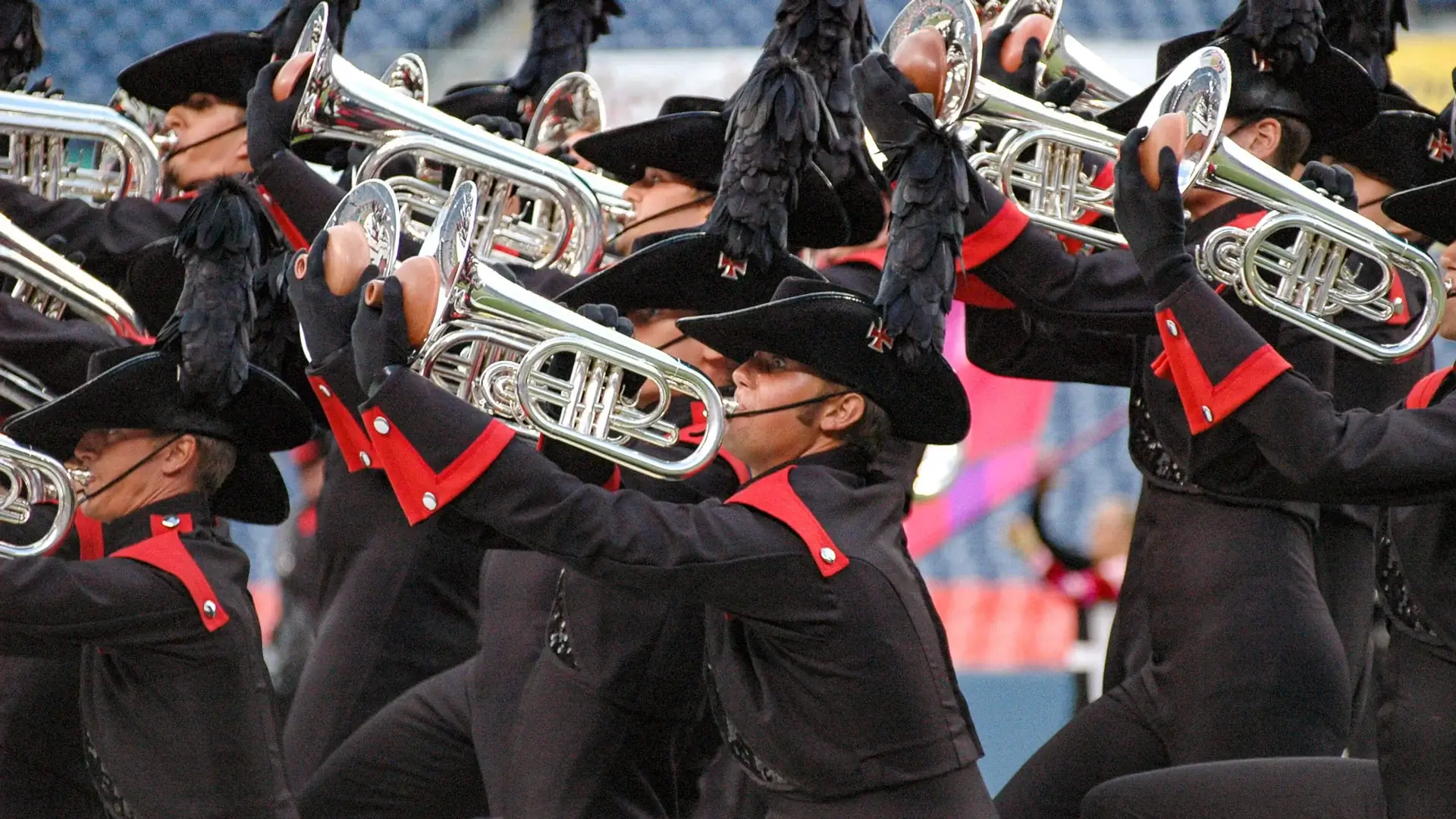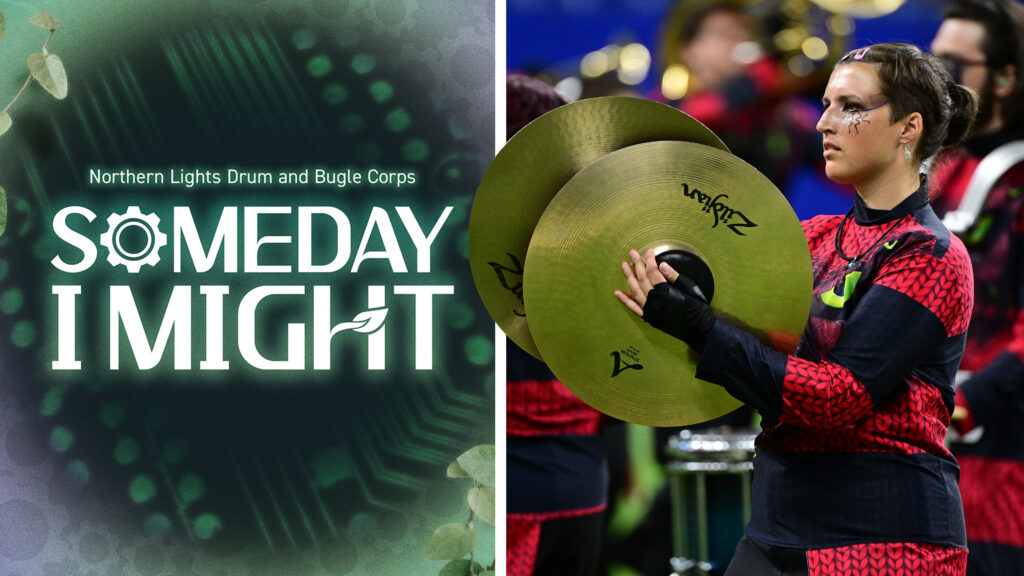In 2004, the DCI World Championships returned to Denver 26 years after the event series was last in town.
Perhaps the biggest news leading up to the summer season was the allowed use of amplification (though not yet electronic instruments), resulting in applications as subtle as hearing the low end of a marimba for the first time to singing and the recitation of poetry.
A second percussion judge was added to the scoring recaps, the most obvious result being that scores often were taken out to three decimal places. That became most apparent when Glassmen captured the last spot in the Finals competition by just 0.075 over Spirit from JSU, while the Cavaliers topped the Blue Devils for the title by 0.175.
Crossmen finished the season in 11th place with “Unity (Out of Many: One).”
Three musical selections were highlighted in respective segments titled, “Texture,” “Melody,” and “Rhythm.” The show explored how the individual parts join together to form a drum corps show, based on the premise that each element, by itself, doesn’t carry much weight unless the other elements are present.
The “Texture” segment of the show opened with “Jubal Step,” from Wynton Marsalis’ “ALL RISE,” a 1999 work commissioned by the New York Philharmonic. The large-scale work was in the spirit of “Blood on the Fields,” the 1997 piece that won Marsalis the Pulitzer Prize in Music. The composer commented that he believes the blues is the foundation of all good music. His 100-minute “ALL RISE” was his attempt to prove that hypothesis; the work included a full orchestra and a jazz band that performed traditional New Orleans brass band music, plus American fiddling tunes, gospel proclamations, and progressive jazz.
Marsalis also included a 100-voice chorus and classical and world music styles, the latter including ancient Greek modes, didgeridoos, and Chinese parade bands. The effervescent “Jubal Step” was the first movement of the magnum opus, part of the first four movements that Marsalis claimed represented birth and self-discovery.

Crossmen’s production opened with mysterious sounds from the brass section facing backfield, leading into a joyous, brief statement when everyone turned to the front. Plunger mutes were featured on the high and middle brass, creating a “wah-wah” effect. At the end of that segment, hidden under a screaming trumpet duet, the tubas played the theme from “Birdland,” a tune previously played by the corps in 1996, 1997, and 2000. One of the fun visual elements of the opener was watching the color guard members run to keep up with the rapid succession of featured horn and drum features.
The “Melody” segment of the show was devoted to singer-songwriter Joni Mitchell’s “Both Sides, Now,” written in 1967 and inspired by a passage in Saul Bellow’s 1959 novel, “Henderson the Rain King.” The song became a huge hit when Judy Collins recorded it for her 1967 album, “Wildflowers,” which won Collins a 1969 Grammy Award for Best Folk Performance.
The pieces of melody fit together through the interplay of trumpets and baritones, accompanied by the color guard dancing sans equipment for much of the piece. Flags were unveiled for the big musical hit, which quickly descended in volume and stayed soft through the end of the piece. At the end, two solo dancers embraced to pull any discord into a fusion of harmony and tranquility.

The “Rhythm” segment of the show was devoted to Full Circle’s “Puma,” written by keyboardist-vocalist Karl Lundeberg for the opening track of the band’s third album, the 1991 “Secret Stories.” Full Circle became known for mixing a wide variety of musical genres into a cohesive New Age and jazz-fusion identity of its own, and for collaborating with numerous dance and theater companies. The album was recorded in Brazil and featured numerous guest Brazilian percussionists. One reviewer stated the album “is the soundtrack to the South American vacation you wish you could take.”
The first segment of “Puma” culminated with the horns forming the corps’ logo, a block Maltese Cross. The percussion section took over for an extended feature of grooving Brazilian rhythms, with red Maltese Crosses unveiled on the new set of color guard flags.
A short reprise of themes from “Jubal Step” and “Both Sides, Now” saw the brass players appear in a larger Maltese Cross, this time as an open outline form. The show ended with members of the cymbal line spelling out a giant “X,” referencing the corps’ nickname of “X-Men.”
2004 World Championship Finals Awards Ceremony

Michael Boo was a member of the Cavaliers from 1975-1977. He wrote about the drum corps activity for more than 35 years while serving as a staff writer for various Drum Corps International projects. During his lifetime Boo wrote for numerous other publications including an honors-winning book on the history of figure skating. He also was an accomplished composer. Boo passed away in 2020 and was inducted into the DCI Hall of Fame posthumously in 2021.





